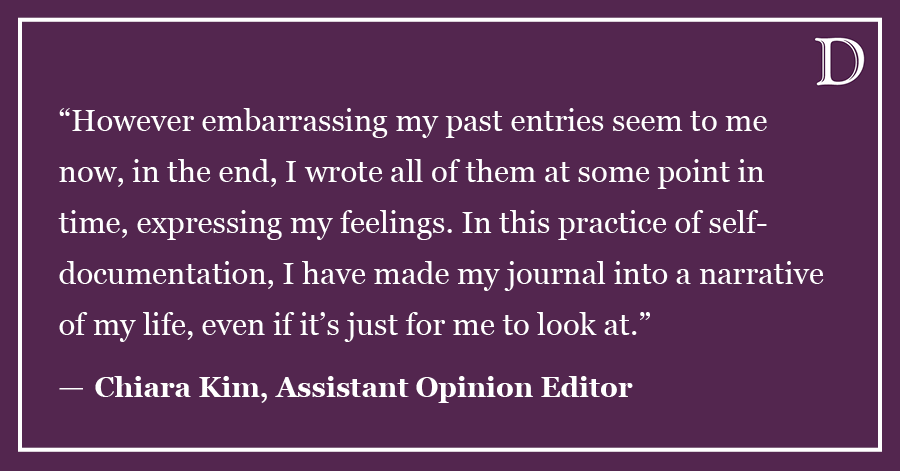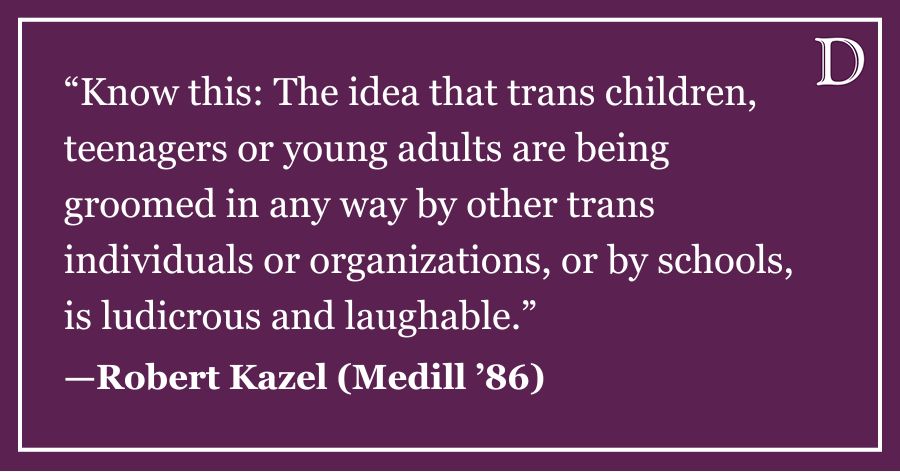
Spoiler alert: The following column contains (vague) spoilers for the plot of the recent Disney movie “Frozen.” Please proceed with caution!
During the last weeks of Fall Quarter, I heard many friends excitedly discuss the movie “Frozen.” As they sang songs from the movie and told me how adorable it was, I knew I had to see it for myself. I made plans with a friend to see the movie as an end-of-finals treat.
“Frozen” is an animated PG movie, and given that, I expected some predictable kids’ movie gimmicks and cute cartoons (the reindeer Sven and the snowman Olaf provided some much-needed comic relief). What I received, however, was a full-on emotional blitz.
Watching the ship scene made me tear up. Listening to “Do You Want To Build a Snowman?” overwhelmed me with sisterly guilt for not spending more time with my younger brother. “Let It Go” was an inspiring anthem to show and be proud of my true self. “Fixer Upper” was a powerful reminder that the people I love are not always perfect, but that doesn’t mean that they don’t always love me.
After experiencing all of these overwhelming feelings in the theater, I couldn’t let them go (see what I did there?) when I got home. Typically, when I go to an emotionally intense movie, I have two discussions — one with whomever I went to the movie with, and one recounting to my parents how the movie was and how it affected me. And then, because such intense emotions weigh so heavily on me, I dump them and go back to my regular life, thinking about happy things and keeping busy.
But “Frozen” kept me thinking and engaged throughout Winter Break and beyond. I listened to my favorite tracks on the soundtrack repeatedly, read articles about the movie’s symbolic meanings, and gushed with friends over Olaf. I couldn’t stop analyzing what the movie had made me think about my relationships with my friends, my boyfriend, my family.
It seems like many of my peers are in the same boat as me. When I got back to campus, I was promptly greeted by several fellow “Frozen” fans who gushed over their favorite moments and offered analysis about what the movie meant to them. It was refreshing seeing college students get so excited about something made for eight-year-old viewers.
Seeing all of these “Frozen” articles and hearing all of my fellow students talk about the movie demonstrates the power the movie has to foster conversations about mature, adult issues. “Frozen” mirrors the struggles that my generation faces with multiple complex themes and variations.
For example, there is a popular interpretation that “Frozen” signifies the challenges LGBT people face coming out. Several of my friends agree Elsa, locked away because of her unique abilities, could be a symbol for a gay teenager. Her song “Let It Go” represents a triumphant “coming out” and a proud acknowledgment of her sexual orientation.
Others argue Elsa embodies a person suffering from mental illness. Elsa is locked away in her room, personifying the isolation and stigmatization many people with mental illness suffer from. When she is banished from the kingdom, she builds a giant castle of snow and ice, locking herself in and further separating herself from the rest of the world. Even the ever-present cold and the ice symbolize a coldness of spirit, a frozen heart.
Whatever interpretation one takes of “Frozen,” I appreciate its ability to get my generation talking about the real issues that affect us. From mental illness to sexual orientation, or even just relationships in general, “Frozen” is a crucial step in tackling many contemporary issues that college students face.
Meredith Goodman is a Weinberg junior. She can be reached at [email protected]. If you would like to respond publicly to this column, send a Letter to the Editor to [email protected].













